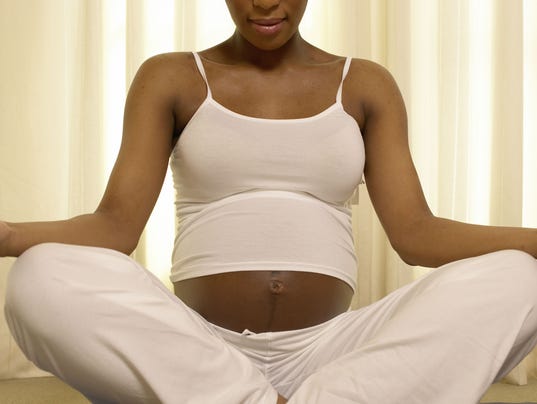 Serena Williams’ recent Snapchat photos showing the tennis star volleying a medicine ball at 35 weeks pregnant have some wondering: What’s a healthy exercise routine while pregnant?
Serena Williams’ recent Snapchat photos showing the tennis star volleying a medicine ball at 35 weeks pregnant have some wondering: What’s a healthy exercise routine while pregnant?
Well, it’s probably not the same for someone as active as Williams and someone who barely gets in 1,000 steps a day. Let’s be real, this woman won the Australian Open while two months pregnant. Her fitness routine is anything but normal. She’s fierce, and no one was expecting her to back down with a baby bump.
But, according to medical experts, exercise is an important part of a healthy pregnancy. The old-school idea that pregnant women should be on bed rest doesn’t apply to most women, the American Congress of Obstetricians and Gynecologists pointed out a few years ago. The group says physical activity risks during pregnancy are minimal. In fact, healthy pregnant women should be encouraged to do aerobic and strength-conditioning exercises before, during and after pregnancy.
Margaret Dow, a physician of obstetrics gynecology with the Mayo Clinic, said Williams is sharing a beautiful message about exercise while pregnant.
“Celebrating fitness in pregnancy is a fantastic move,” Dow said.
As a general rule, women who are physically active before pregnancy can maintain the same level of activity during the pregnancy — even until the birth, Dow said. Obviously, women should be aware their center of gravity is different. So, be cognizant of exercises, like bike riding, that could end in a serious fall. Contact sports should also be avoided, Johns Hopkins Medicine advises.
Even women who aren’t physically active before pregnancy can ease into exercise while pregnant. Walking and other weight-bearing exercises are safe for most women, Dow said. Incorporating these movements for at least 20 minutes a day on most days of the week is encouraged.
“Labor is a marathon,” Dow said. “It’s an intense physical event and training for it is a great way to look at exercise during pregnancy.”
Physical activity can reduce unhealthy weight gain during pregnancy and decrease the risk of gestational diabetes and preeclampsia, all of which can lead to long-term health problems. Regular exercise can also prevent the need for a C-section, Dow said.
Conditions that could affect exercise while pregnant include: Cervical problems, decreased fetal activity, dizziness, heart disease, high blood pressure, leaking amniotic fluid, preterm labor, vaginal bleeding, shortness of breath and a heart rate over 100 beats per minute, according to Johns Hopkins Medicine. In all cases, women should talk with their doctor about their level of physical fitness.
[“Source-usatoday”]